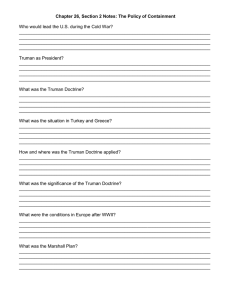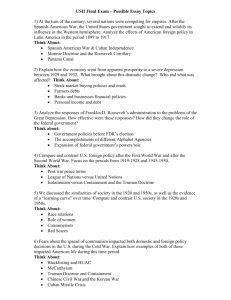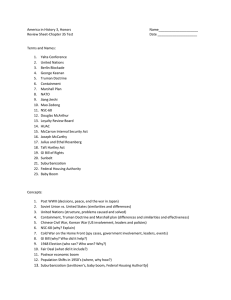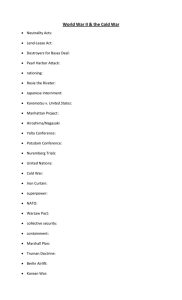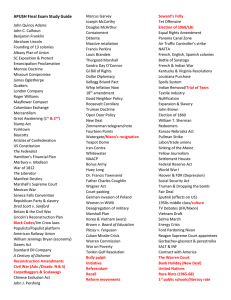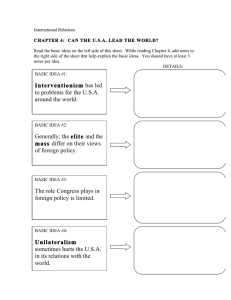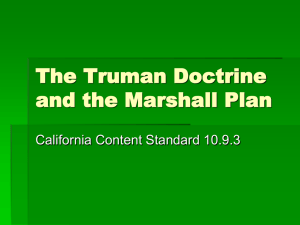International Relations Isolationism Power
advertisement
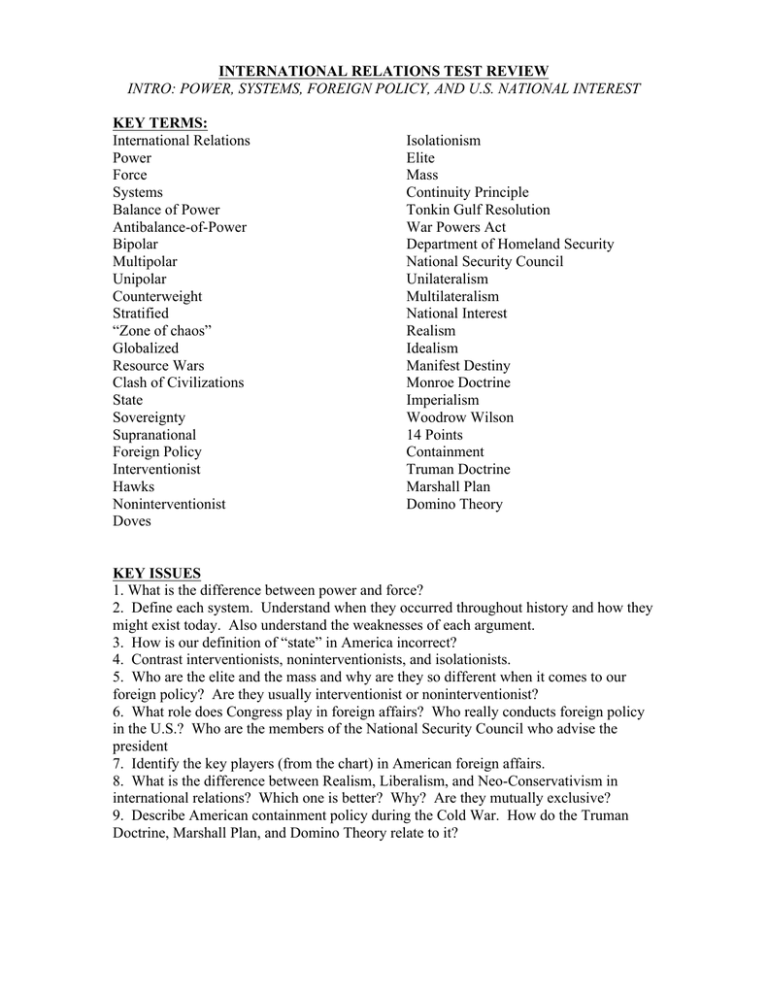
INTERNATIONAL RELATIONS TEST REVIEW INTRO: POWER, SYSTEMS, FOREIGN POLICY, AND U.S. NATIONAL INTEREST KEY TERMS: International Relations Power Force Systems Balance of Power Antibalance-of-Power Bipolar Multipolar Unipolar Counterweight Stratified “Zone of chaos” Globalized Resource Wars Clash of Civilizations State Sovereignty Supranational Foreign Policy Interventionist Hawks Noninterventionist Doves Isolationism Elite Mass Continuity Principle Tonkin Gulf Resolution War Powers Act Department of Homeland Security National Security Council Unilateralism Multilateralism National Interest Realism Idealism Manifest Destiny Monroe Doctrine Imperialism Woodrow Wilson 14 Points Containment Truman Doctrine Marshall Plan Domino Theory KEY ISSUES 1. What is the difference between power and force? 2. Define each system. Understand when they occurred throughout history and how they might exist today. Also understand the weaknesses of each argument. 3. How is our definition of “state” in America incorrect? 4. Contrast interventionists, noninterventionists, and isolationists. 5. Who are the elite and the mass and why are they so different when it comes to our foreign policy? Are they usually interventionist or noninterventionist? 6. What role does Congress play in foreign affairs? Who really conducts foreign policy in the U.S.? Who are the members of the National Security Council who advise the president 7. Identify the key players (from the chart) in American foreign affairs. 8. What is the difference between Realism, Liberalism, and Neo-Conservativism in international relations? Which one is better? Why? Are they mutually exclusive? 9. Describe American containment policy during the Cold War. How do the Truman Doctrine, Marshall Plan, and Domino Theory relate to it? Study the Following: 1. Textbook: Chapters 1, 4, and 2 2. “Strange New World: Power and Systems in Transformation” - Chapter 1 notes 3. “Can the United States Lead the World?” - Chapter 4 notes 4. “U.S. Foreign Policy and National Interests” notes 5. “IR And Zombies Article 6. U.S. National Interests grid
